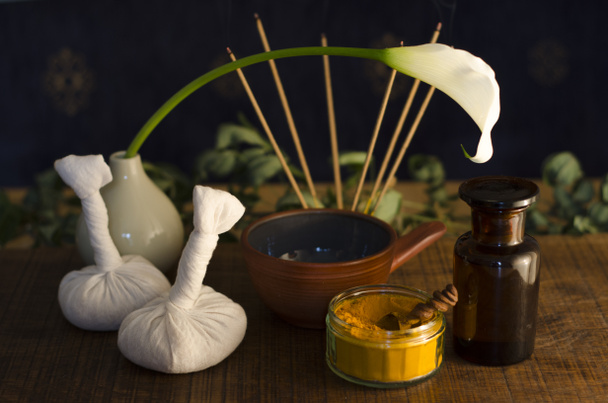Are you really in control of your sugar cravings? Let’s find out. Imagine this possible scenario. You do everything right for your health – you wake up on time, have warm water or herbal teas, do exercise, practice Dinacharya (daily routine), and eat well according to your Prakriti (body type). You feel great! Lunch arrives, and you attempt to keep it balanced — some rice, dal, and veggies. All of a sudden, you’re exhausted. You feel sluggish. Your eyes want to shut. And then comes that craving. A strong desire for something sweet, perhaps tea with more sugar and a biscuit – anything sweet. Sounds familiar? You’re not alone. Sugar cravings such as this happen to most of us on a daily basis even when we feel we have our diet under control. But why does this happen? Is our body really in need of it ? or have we just trained to demand it at certain times? Let’s dive deep into this sweet addiction and find out how to break free from it. Are you dependent on sugar? Most people don’t realize how dependent they are on sugar. It sneaks into our diet in so many ways that we don’t even notice. Processed foods, packaged snacks and even seemingly “healthy” breakfast cereals are loaded with hidden sugars. One of the biggest signs of sugar dependence is the afternoon slump – that sudden drop in energy after lunch and you feel like taking a nap. If you experience this, chances are your body is overly dependent on it for quick energy. Have you seen some people who add 2 spoons of sugar to their tea and still feel it is not sweet enough? That’s how they have trained their taste buds. But here’s the good news: You can re-train your taste buds to consume less sugar too! How? The 14-day challenge: Reset your taste buds Want to tackle sugar cravings? The first step is to stop eating sugar for 14 days. During this time do not have food with added sugar in it. This also means no white sugar, no jaggery, no honey, and no hidden sugars in processed foods. Sounds tough? Yes, the first few days will be hard. But after a week, you’ll notice something incredible – your cravings will reduce! Food will start tasting naturally sweeter, and you won’t need as much sugar to enjoy it. Give it a try and see for yourself. The ultimate secret to longevity Let me tell you a fascinating story. Once upon a time, there lived a guy called Micheal Poulain. He wanted to find out the most perfect diet in the world that suited everyone. So he set out on a journey to discover the secrets behind the perfect diet. In his journey, he discovered places called Blue Zones where people had no chronic diseases and lived till 100 years. When he studied deeply, he found some common habits among these long-living people: They sat down to have their food. There were no processed foods in their diet. And here’s the most shocking part – they only had sugar twice a year- during Christmas and Easter Now think of us! How often do we have sugar? For birthdays, anniversaries, baby showers, festivals, when we are happy, sick, sad or stressed – we make 10 million reasons! No wonder our bodies are struggling. Step 1: Make sugar an occasional indulgence So the first step to good health is to reduce your intake of sugar and make it an occasional indulgence. When you indulge, do it happily with no guilt attached because your thoughts also work in the background in how well your body digests and assimilates food. If you eat sweets with guilt and stress, your body won’t process them well. So when you indulge, do it mindfully and happily. Step 2: Try natural alternatives I have seen plenty of videos where people say they have stopped having refined sugar and are using jaggery (gur) as a healthy alternative. But according to Ayurveda, Mishri or rock sugar is the better alternative to it. It is the kind that you can have every day . Mishri has a cooling effect on the body. Jaggery, on the other hand, has a heating effect. Have you ever tried making your sweets with Mishri instead of refined ? Sounds absurd, but trust me, it’s worth trying. India is a land of festivals and no festival is complete without sweets. So, instead of consuming lots of refined sugar, why not replace it with something beneficial. If you must use a sweetener, Mishri is the best choice. Try replacing white sugar with mishri and notice the difference. Step 3: Eat mindfully & reduce hidden sugars Sugar is sneaky. It hides in foods you wouldn’t expect, like: Bread Ketchup Breakfast cereals Packaged juices Flavoured yogurts Start reading ingredient labels. If you see words like “high fructose corn syrup,” “glucose syrup,” or “cane sugar,” avoid those products. A simple trick? Eat more whole foods. The more natural your diet, the less sugar you’ll consume without even trying. Step 4: Balance your meals to reduce cravings Ever noticed that when you eat a meal rich in protein and fiber, you don’t crave sweets as much? That’s because balanced meals keep your blood sugar stable. To reduce its cravings, make sure your meals include: Healthy fats Fiber-rich foods Protein These foods slow down sugar absorption and keep your energy steady. Step 5: Keep yourself hydrated Sometimes, what we think is a sugar craving is actually just thirst. Next time when you… Continue reading Tackle Sugar Cravings The Ayurvedic Way
Tackle Sugar Cravings The Ayurvedic Way




